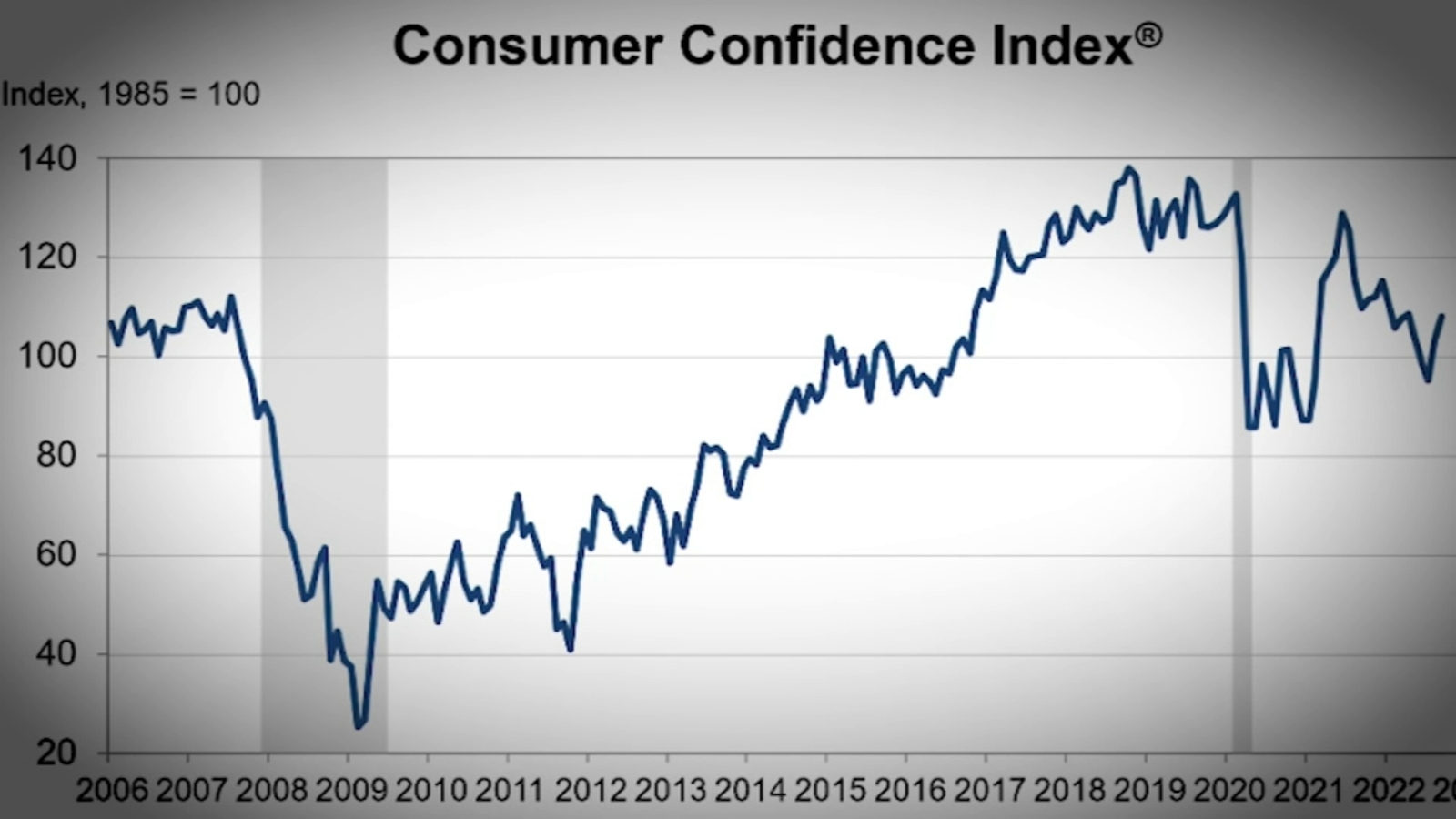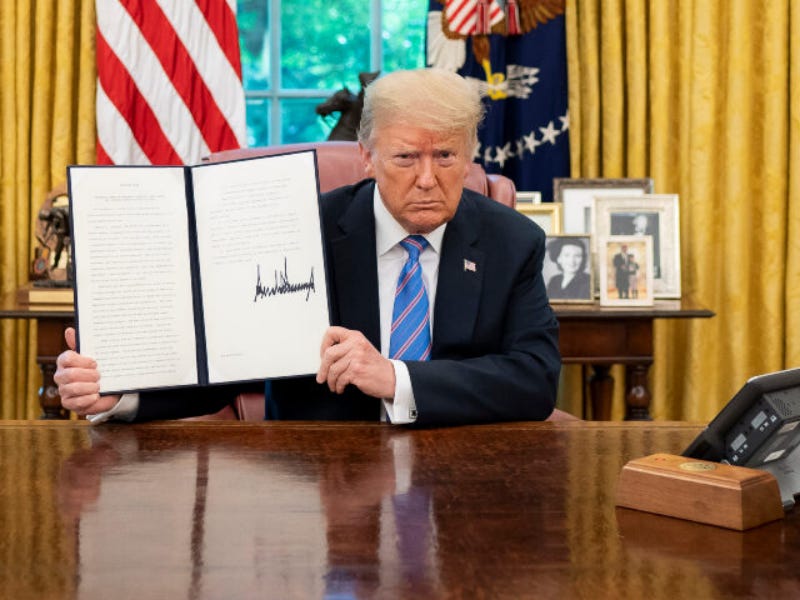Canadian Election 2024: Tariff And Annexation Fears Dominate

Table of Contents
Rising Tariff Concerns and Their Impact on Canadian Businesses
Increased tariffs, particularly those potentially imposed by the US, pose a significant threat to Canadian businesses and the Canadian economy. These Canadian tariffs and the resulting trade wars are impacting import costs, disrupting export markets, and creating significant business uncertainty. This uncertainty is directly impacting economic growth across various sectors.
-
Increased import costs: Higher tariffs on imported goods increase the cost of production for many Canadian businesses, reducing their competitiveness in both domestic and international markets. This is especially true for businesses relying on imported raw materials or components.
-
Disrupted export markets: Retaliatory tariffs from other countries in response to Canadian tariffs can severely restrict access to crucial export markets for Canadian goods, leading to job losses and economic hardship.
-
Impact on specific sectors: The agricultural sector, for example, is particularly vulnerable to tariff increases on exports to the US, impacting farmers' livelihoods and the overall Canadian food supply. Manufacturing and forestry are similarly threatened.
-
Small business vulnerability: Small and medium-sized businesses (SMBs) often lack the resources to navigate complex trade regulations and absorb the impact of tariff increases. They are disproportionately affected by trade disputes, potentially leading to business closures.
-
Government strategies: The government will need to implement robust strategies to mitigate the effects of tariffs. These could include negotiating favorable trade agreements, providing financial assistance to affected businesses, and investing in diversification strategies to reduce reliance on specific markets. The success of these strategies will heavily influence voter perception in the Canadian Election 2024.
Annexation Fears: A Resurfacing Threat to Canadian Sovereignty?
While seemingly extreme, annexation concerns regarding potential US annexation are influencing the Canadian Election 2024. This is not merely a fringe issue; fears about losing Canadian sovereignty and undermining national identity are impacting public opinion and political discourse.
-
Historical context: The historical context of past annexation attempts and the resulting national unity debates are relevant. These past anxieties remain a potent force shaping the narrative around Canadian identity and political independence.
-
Current political climate: While the likelihood of immediate annexation is low, the current political climate of heightened nationalism and protectionism in some countries fuels anxieties. This makes the discussion of Canadian sovereignty a central topic.
-
Public opinion: Public opinion polls and surveys should be carefully analyzed to assess the level of concern regarding annexation. Even if a majority doesn't actively fear it, a significant minority harbouring such fears will influence the election outcome.
-
Political party stances: Different political parties are addressing these anxieties in their platforms with varying degrees of emphasis. This provides voters with distinct choices related to foreign policy and national security. Examining these platforms closely is crucial for an informed vote in the Canadian Election 2024.
-
Media influence: The role of media, both social and traditional, in shaping public perceptions of this threat is significant. The amplification of certain narratives can contribute to heightened anxieties or downplay the issue.
The Impact of these Fears on Voter Turnout and Party Platforms
The anxieties surrounding Canadian tariffs and annexation concerns are significantly influencing voter turnout and shaping the Canadian Election 2024 political landscape. These concerns are prompting voters to more closely scrutinize candidate platforms and party positions.
-
Voter decisions: Voters are prioritizing candidates and parties that offer concrete plans to address tariff fears and safeguard Canadian sovereignty. This means that economic and foreign policy platforms will be under intense scrutiny.
-
Party stances: The different stances taken by various political parties on these issues are crucial to understanding the potential outcomes of the election. Analyzing these positions will inform voters' choices.
-
Campaign strategies: Campaign strategies are being adapted to reflect the importance of these issues. Expect to see more emphasis on economic security and national identity in party messaging.
-
Media's role: Social and traditional media will be crucial in shaping narratives around Canadian tariffs and annexation concerns, influencing public perception and ultimately affecting voter choices.
-
Election predictions: Based on these concerns, predictions about the election outcome will heavily rely on how effectively different parties address voters’ anxieties.
Conclusion
The Canadian Election 2024 is a pivotal moment for the country. Concerns over tariffs and the resurfacing of annexation fears are shaping the political landscape and influencing voter decisions. The outcome will significantly impact Canada's economic trajectory and its relationship with the United States. Understanding these issues, especially the debates surrounding tariffs and annexation, is essential to participating effectively in the democratic process.
Call to Action: Stay informed about the crucial issues shaping the Canadian Election 2024, particularly the debates surrounding tariffs and annexation concerns. Research candidate platforms, engage in informed discussions, and exercise your right to vote to ensure a future that reflects your priorities. Your voice matters in determining the direction of Canada's future. Don't let these critical Canadian Election 2024 issues go unaddressed; make your voice heard!

Featured Posts
-
 Trumps Transgender Athlete Ban Minnesota Under Pressure From Us Attorney General
Apr 29, 2025
Trumps Transgender Athlete Ban Minnesota Under Pressure From Us Attorney General
Apr 29, 2025 -
 Winners Of Minnesotas Snow Plow Naming Contest
Apr 29, 2025
Winners Of Minnesotas Snow Plow Naming Contest
Apr 29, 2025 -
 Trumps First 100 Days Part 2 Trade Deregulation And The Impact Of Executive Orders
Apr 29, 2025
Trumps First 100 Days Part 2 Trade Deregulation And The Impact Of Executive Orders
Apr 29, 2025 -
 China Greenlights 10 New Nuclear Reactors Fueling Energy Growth
Apr 29, 2025
China Greenlights 10 New Nuclear Reactors Fueling Energy Growth
Apr 29, 2025 -
 Anthony Edwards Paternity Dispute Resolved Ayesha Howard Awarded Custody
Apr 29, 2025
Anthony Edwards Paternity Dispute Resolved Ayesha Howard Awarded Custody
Apr 29, 2025
Latest Posts
-
 Finding Nostalgia Older Adults Embrace You Tube For Classic Tv
Apr 29, 2025
Finding Nostalgia Older Adults Embrace You Tube For Classic Tv
Apr 29, 2025 -
 You Tube A New Home For Older Viewers Favorite Shows
Apr 29, 2025
You Tube A New Home For Older Viewers Favorite Shows
Apr 29, 2025 -
 Finding Comfort And Nostalgia Older Viewers On You Tube
Apr 29, 2025
Finding Comfort And Nostalgia Older Viewers On You Tube
Apr 29, 2025 -
 You Tubes Resurgence Why Older Viewers Are Returning
Apr 29, 2025
You Tubes Resurgence Why Older Viewers Are Returning
Apr 29, 2025 -
 You Tube A New Platform For Older Viewers Favorite Shows
Apr 29, 2025
You Tube A New Platform For Older Viewers Favorite Shows
Apr 29, 2025
